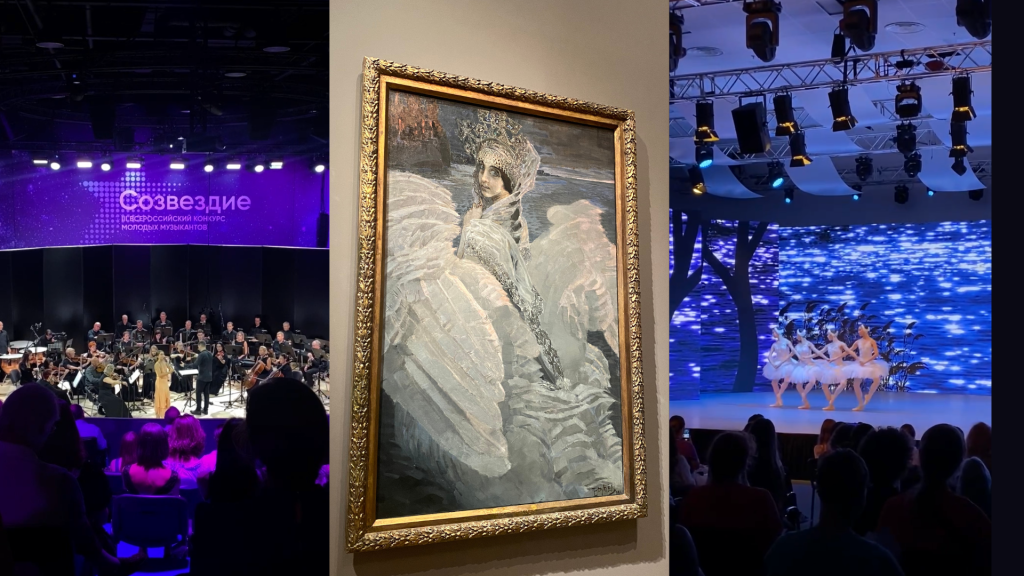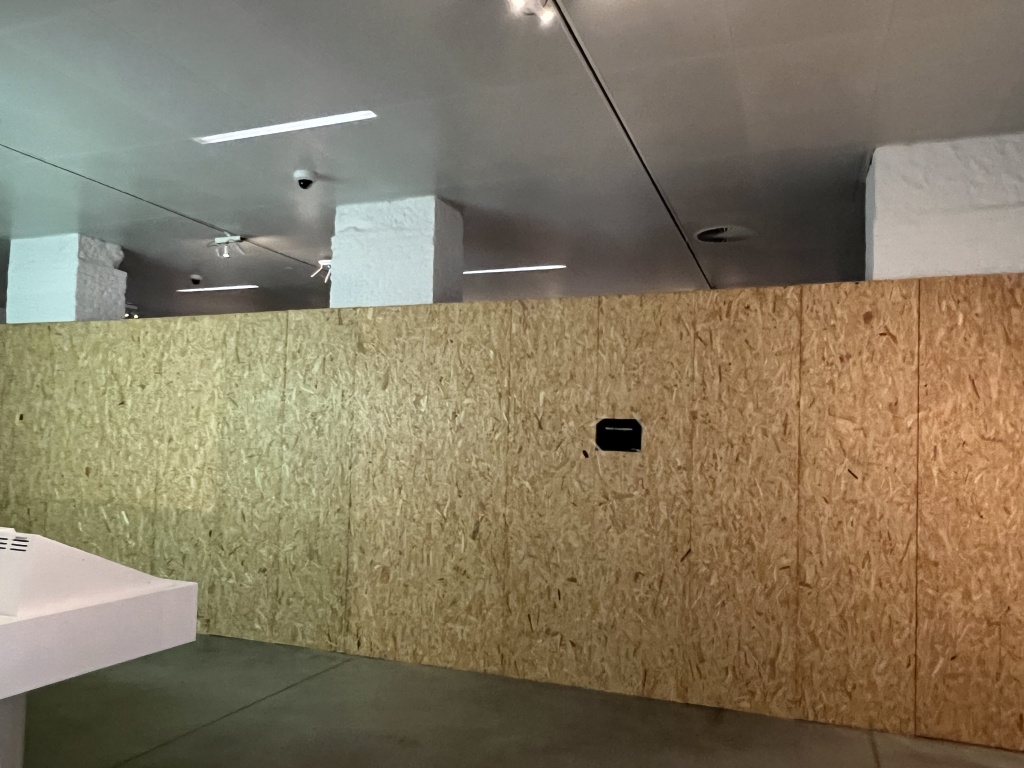While the woke movement advocates social justice and inclusivity, its influence has been increasingly criticised for stifling open dialogue with diverse perspectives. Against this backdrop, a group of independent academics from Belgium decided to respond to concerns about woke activism and cancel culture in academic institutions. They did so by creating Hypatia, an initiative that aims to safeguard academic freedom and freedom of opinion at universities and colleges. Their core concerns: threats to academic freedom and freedom of expression.
Fight for freedom
Antwerp University was where the idea of Hypatia gained momentum. In June 2022, a teacher’s aide and assistant were temporarily suspended for making statements about migrant students. After a lecture, they were discussing foreign students, and particularly said that it would be easier for Moroccans to attend school in a separate system so that the general system wouldn’t have to be adapted for them all the time.
‘This weekend, once again, I read in the newspaper, ‘Youth from Brussels gets into fights at the lake’. You can almost be certain that they don’t dare to say that they are of North-African descent’, said one of them as well. Neither of them knew that their conversation was being recorded. Someone then posted the recording of the conversation on social media, and it received extensive coverage in the mainstream media.
Astrid Elbers, a language teacher at Antwerp University, founder and spokesperson for Hypatia, points out that the university’s rector failed to defend the two women, which she found shocking: ‘It’s not allowed to record such conversations, and it’s definitely not allowed to share them on the Internet. That’s actually a crime. Moreover, what these ladies were discussing was quite innocent. Many teachers discuss similar things in teacher’s rooms when they face issues with students. It’s an informal setting, similar to chats people have at cafes or restaurants. Teachers should have a safe space to freely discuss matters without fear of being recorded or fired for their opinions or what they say.’

For her, this incident underlined the importance of addressing the concepts of limits to academic freedom and ideological standards in universities. It led to Astrid Elbers starting a petition and bringing a small group of professors together to create Hypatia.
Founded In December 2022, Hypatia is striving to deal with such cases and protect academic standards, freedom of expression and ensure that universities remain places for unbiased research, critical thinking and intellectual diversity. ‘Since the nineteenth century, university institutions, especially in democratic societies, have been a beacon of free inquiry, dissemination of knowledge and peaceful and critical debate,’ states Hypatia’s manifesto, implying that academia are not held to the same standards any more.
How does Hypatia work in practice?
Well, it all starts when someone reports a ‘woke incident’ via a form on their website. Astrid Elbers explains that, when they receive such reports, the Hypatia team strives to offer guidance and assistance or direct them to the appropriate resources. Primarily, they provide advice and facilitate dialogue between the parties involved to seek a resolution. Astrid Elbers emphasises that ‘we’re not a court, so we can’t impose legal sanctions, but we offer advice to the victims and try to avoid seeing things in black and white.’
Within the Hypatia team, there are lawyers who can offer legal support if necessary. For example, if there are concerns about the quality of a publication, Hypatia can provide an evaluation. Astrid Elbers adds that, ‘in these cases, it is beneficial to have a group of scientists who can objectively assess the content and say: ‘We believe it meets the standards compared to other published works.’ This type of feedback can exert positive pressure on the academic world.’

Hypatia recently dealt with a case involving a series of lectures on transgenderism at the University of Antwerp held in November 2022. Some panelists faced accusations of being ‘transphobic’ due to their past academic work and the content of their statements during these lectures.
Maïté de Haan, a member of the academic staff, explained in the student magazine Dwars why she considered the lecture series to be problematic: ‘The series present a stereotypical and potentially harmful representation of a trans individual, employing language that may contribute to stigma and pathologization. The title of the series, ‘transgenderism,’ is contentious as it emerged in the 1980s and 1990s, framing trans individuals within the context of ‘disorders’ or ‘problems.’ Lastly, the series raises questions such as, ‘Should society categorize individuals who have undergone surgery as ‘men’ and ‘women’?’ Some view this question as potentially promoting transphobia.’
Hypatia expressed support for the lecturers, arguing that critics were engaging with the issue primarily from an ideological standpoint rather than an academic one.
Hypatia’s impact
Talking about the positive developments that Hypatia is bringing, Astrid Elbers mentions that the initiative has existed since December of last year, making it challenging to pinpoint significant accomplishments.
However, she believes that communication with the rector of the University of Antwerp has become noticeably ‘softer’ since these two incidents took place. Elbers assumes that he is now giving more attention to how he treats the employees. During the period when they experienced these two cases, there was a significant influx of calls from the press every day, and it was a difficult experience for him. Elbers notes that he seems determined to avoid a similar situation in the future.

She also mentions her positive outlook to the ongoing case Hypatia is working on. ‘It’s still not finished but I have good hope that it will also be something that will have a very positive outcome because it is connected to somebody who does, I think, pretty well academic work. But her ideological points of view are a bit controversial, also not ideological points of view I agree with. But I don’t think the university should punish her for that. And it’s clear that in this case it has happened and I think we are working on that pretty well.’
In response to the criticism
Hypatia, which aims to promote the greater good and academic freedom, however, has been facing a lot of criticism. Some of the criticisms comes from prominent figures in Belgian politics. Benjamin Dalle, the Flemish Minister of Youth, Media and Poverty Reduction, wrote an article on cancel culture for De Morgen in which he raised concerns about Hypatia: ‘[…] there are some alarm signals. For example, there is Hypatia, the reporting point for ‘woke incidents’ of some academics […] The discussions about woke contribute to creating a climate that makes it harder for minorities to be who they truly are in peace and freedom.’

In response to the criticism, Astrid Elbers says: ‘Benjamin Dalle states that those who are against the woke movement are merely reactionary and seek to undermine the rights of minorities, particularly migrants. Actually, there were also reactions from minorities in the press about this article of Benjamin Dalle, such as Assita Kanko, a European member of Parliament. She mentioned something that resonated with me. She said that the woke movement is not a fight for more liberties or freedom, contrary to what some, like Benjamin Dallek, suggest — that it gives a voice to minority groups. Instead, the woke movement tends to victimise minority groups and perpetually keeps them in a victim role. This mindset is not beneficial for them, especially in the long run.’
Freedom of speech in the academia
One of the ways to address the situation regarding freedom of speech in the academia, as expressed by Astrid Elbers, is through the implementation of different regulations at the university level. These changes should involve the university board, including the rector and the governing body, allowing for a significant degree of freedom and actively promoting freedom of speech and diverse perspectives within the academic community.
For Astrid Elbers, ‘professors should have the freedom to have their own ideological viewpoints. At the individual level, it is important to provide a greater level of freedom, while ensuring a sense of balance and fairness. If you give freedom, it can lead to, again, a stronger group who has dominant views. But we should try to avoid that. This is an ongoing consideration that the university boards must address.’
Future plans
Currently, Hypatia seems to be working towards expanding its spectrum of activities. On the website, they have a section dedicated to podcasts and events. Astrid Elbers mentions that, although Hypatia has been promoting events by other organisations, they have not yet organised their own first event. She explains: ‘We have several ideas for the topics we want to explore, including inviting authors who have written about woke culture and hosting debates that include different perspectives on the subject.’
Furthermore, there is a plan to expand the core group. Currently, Hypatia consists of eight members. Among them is Matthias Storme, a professor of law at KU Leuven and the University of Antwerp in Belgium, along with Leo Neels, the former chairman of the board of Belga Press Agency NV and general director of VTM. Astrid Elbers states that Hypatia intends to broaden its core group by including individuals who are affiliated with universities they haven’t partnered with yet. ‘For example, the University of Hasselt, with which we currently have no connection,’ she explains.





Leave a comment